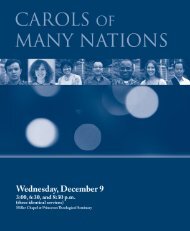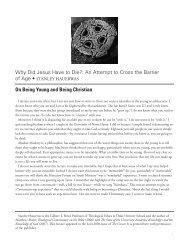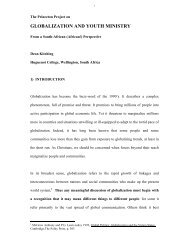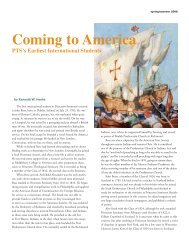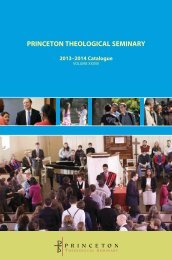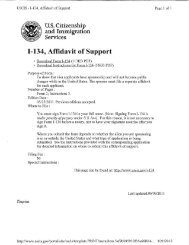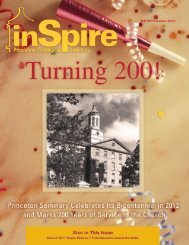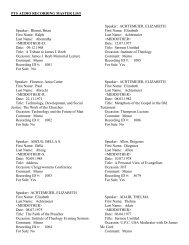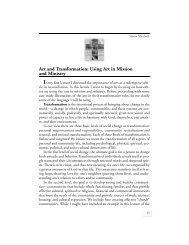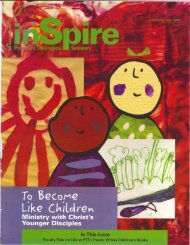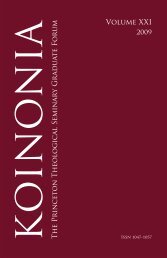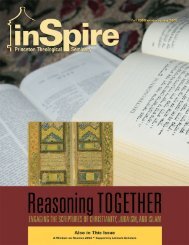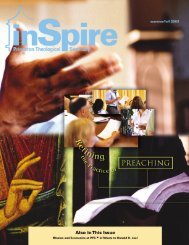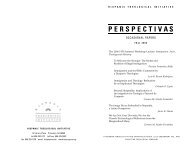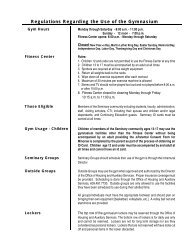PTS Catalogue - Princeton Theological Seminary
PTS Catalogue - Princeton Theological Seminary
PTS Catalogue - Princeton Theological Seminary
You also want an ePaper? Increase the reach of your titles
YUMPU automatically turns print PDFs into web optimized ePapers that Google loves.
New Testament students will ordinarily choose one of the following corpora:<br />
Synoptic Gospels and Acts<br />
Johannine Writings<br />
Paul and Pauline Traditions<br />
Hebrews and Catholic Epistles<br />
Apocalyptic Writings (including Old Testament)<br />
4. Exegetical Competency Exam<br />
This exam will ordinarily not cover material in a student’s area of specialization<br />
(as the Book-and-Block Exam is designed to do). By the end of April, of the student’s<br />
second year of residency, the department will assign faculty examiners who<br />
will notify the student of the book from which the exam passage is to be taken.<br />
Students are responsible for marshalling all necessary resources in advance of<br />
the examination, which will normally be set for the week immediately following<br />
the date of a student’s Book-and-Block exam in September, with the joint oral to<br />
follow as soon thereafter as possible, though ordinarily no later than the end of<br />
September of the student’s third year. The exam is to be open-book, for which<br />
students are expected to use all the resources available to them to do advanced<br />
exegetical work. Students will be given one week to study a set passage (usually a<br />
difficult one); at the end of this week, students must be ready to discuss all aspects<br />
of the text including, as relevant, language, philology, textual criticism, literary<br />
issues, historical questions, and theology. The student is expected to demonstrate<br />
independence in exegesis, an ability to use all relevant languages, and knowledge<br />
of the relevant primary and secondary literature. At the end of the week of study,<br />
students will turn in a copy of their working notes to the Office of Academic Affairs,<br />
Ph.D. Studies. These will provide a partial basis for the ensuing oral examination.<br />
5. Review Essay<br />
This essay is to focus on the status of the question of a particular issue in the field,<br />
normally a topic central to a student’s anticipated dissertation project. The essay<br />
is to involve a thorough review and evaluation of the secondary literature on the<br />
topic in question and is to show promise toward publication, either as an independent<br />
essay or as a part of the dissertation (often the “history of scholarship”<br />
chapter). Ordinarily, the essay is to be submitted to the Office of Academic Affairs,<br />
Ph.D. Studies before the Christmas break of the third year in the program. Faculty<br />
evaluations will be in writing and notification of pass or failure will be given by the<br />
end of the following January.<br />
Successful completion of these Comprehensive Examinations entitles a student to<br />
move directly to the Dissertation Proposal and the Dissertation.<br />
Dissertation Proposal<br />
The dissertation proposal is to be brief (no more than ten pages) and should be<br />
composed by the student in consultation with relevant faculty members. Normally,<br />
it is to be submitted to area faculty for evaluation (via the student’s proposed<br />
Dissertation Committee Chair) no later than March 1 following the successful<br />
!# 64#"<br />
cat1213



